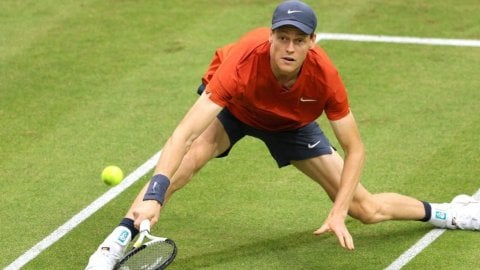
Jannik Sinner: World number one tennis player Jannik Sinner’s coach Darren Cahill has revealed that the 22-year old has been worn down "physically and mentally" by the investigation into his positive tests for a banned substance.
The Italian tennis star tested positive twice in March for clostebol, a banned anabolic steroid, but was cleared of any fault or negligence by an independent tribunal last week. The ruling concluded that Sinner had been inadvertently contaminated through his physiotherapist, Giacomo Naldi.
The controversy erupted after Sinner’s positive tests were first flagged in April, yet his performance on the court hardly wavered. He went on to capture titles in Halle and Cincinnati, ultimately clinching the top ranking for the first time in his career. However, according to his coach Darren Cahill, those results only tell part of the story.

